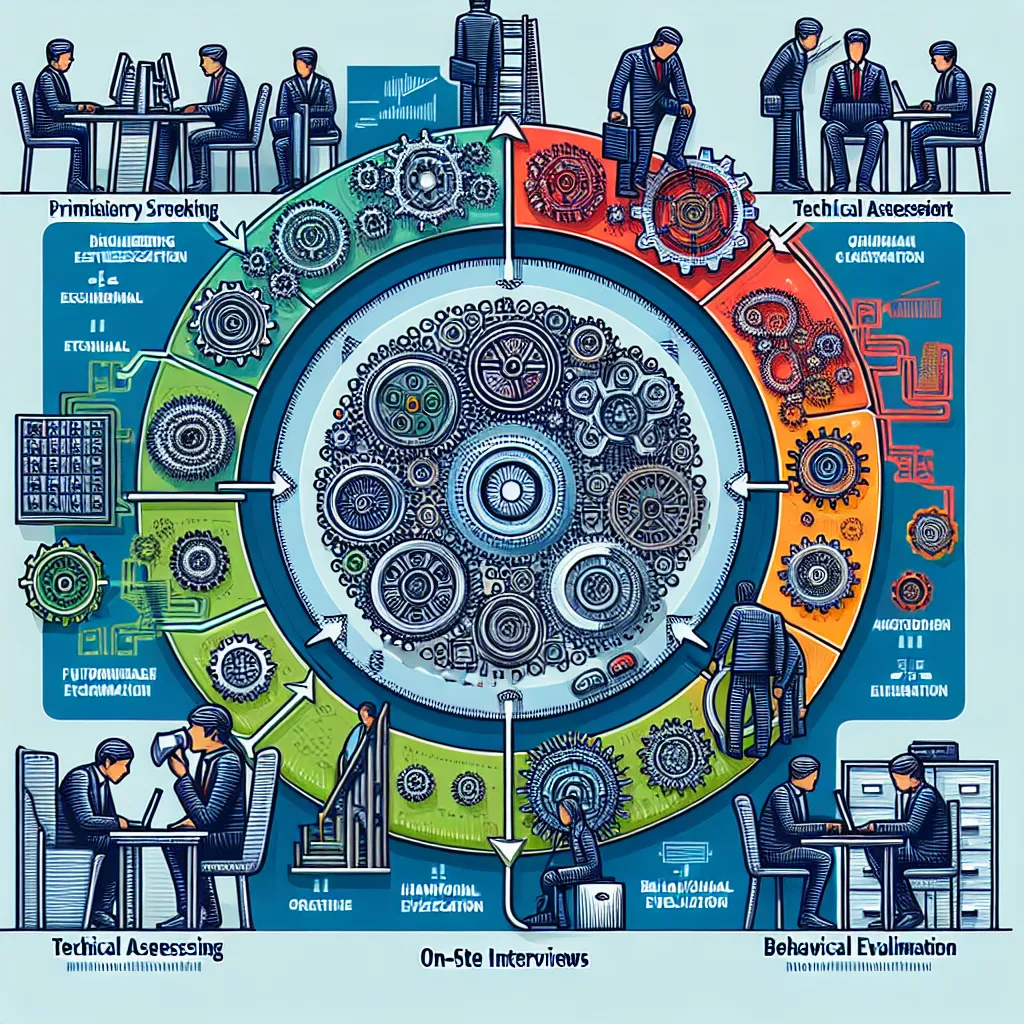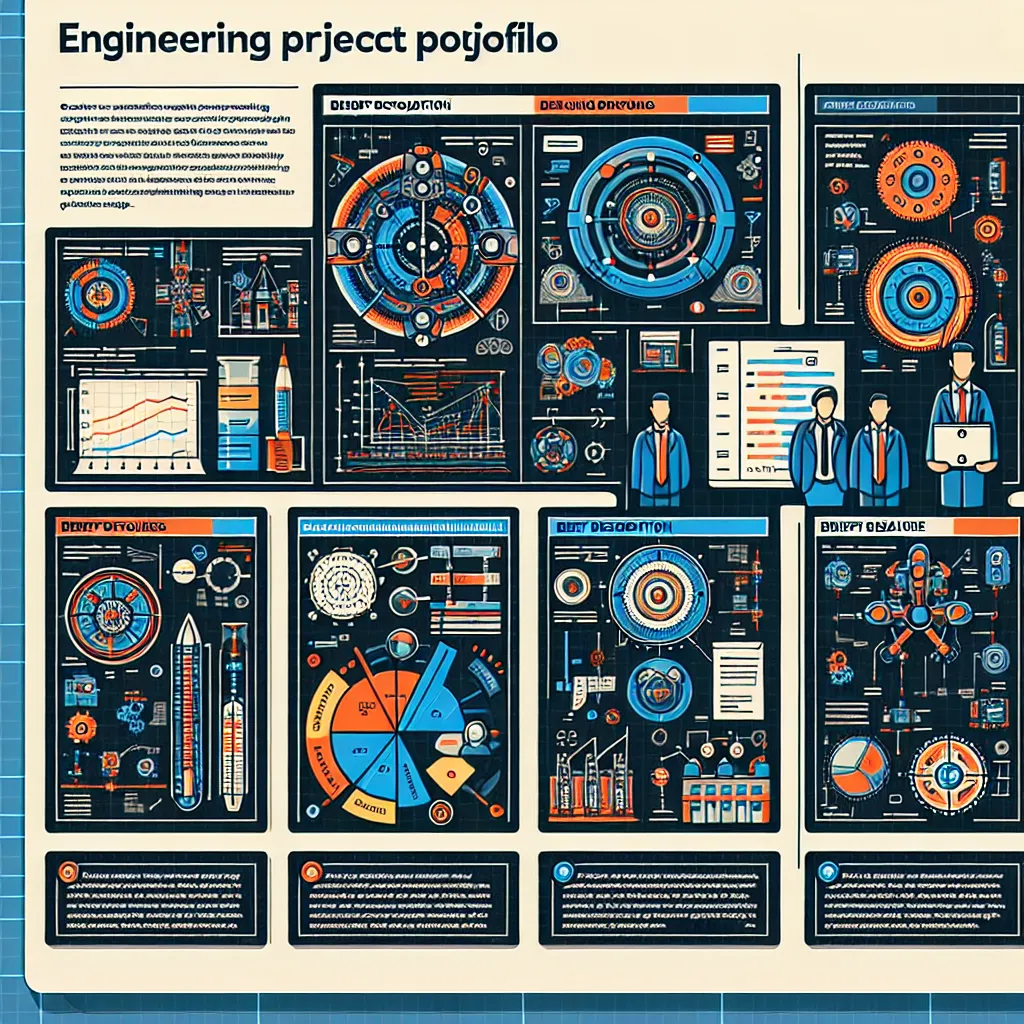Are you gearing up for an engineering interview? Whether you’re a fresh graduate or an experienced professional, proper preparation is key to success. This guide will walk you through the essential steps to ace your engineering interview, providing valuable insights and practical tips to help you stand out from the competition.
Understanding the Engineering Interview Process
Engineering interviews are designed to assess not only your technical knowledge but also your problem-solving skills, creativity, and cultural fit within the organization. Companies often use a multi-stage interview process that may include:
- Initial phone or video screening
- Technical assessments or coding challenges
- On-site interviews with team members and managers
- Behavioral interviews to evaluate soft skills
Understanding this process will help you prepare more effectively for each stage.
 Engineering Interview Process
Engineering Interview Process
Researching the Company and Position
Before your interview, thoroughly research the company and the specific role you’re applying for. This will demonstrate your genuine interest and help you tailor your responses to align with the company’s goals and values.
Key areas to focus on:
- Company history and recent developments
- Products or services offered
- Company culture and values
- Industry trends and challenges
- Specific projects related to the position
Use this information to prepare thoughtful questions for your interviewers, showing your enthusiasm and initiative.
Reviewing Technical Fundamentals
As an engineer, you’ll be expected to have a solid grasp of fundamental concepts in your field. Review the following areas based on your specific engineering discipline:
For Software Engineers:
- Data structures and algorithms
- Object-oriented programming concepts
- System design principles
- Common coding languages (e.g., Java, Python, C++)
For Electrical Engineers:
- Circuit analysis and design
- Digital and analog electronics
- Signal processing
- Electromagnetic theory
For Mechanical Engineers:
- Thermodynamics and fluid mechanics
- Material science and engineering
- Machine design and dynamics
- CAD software proficiency
Make sure to brush up on these concepts and be prepared to discuss them in depth during your interview.
Practicing Problem-Solving Skills
Engineering interviews often include technical problems or coding challenges to assess your problem-solving abilities. To prepare:
- Solve practice problems from resources like LeetCode, HackerRank, or engineering textbooks
- Practice explaining your thought process out loud as you work through problems
- Time yourself to improve your efficiency
- Review different problem-solving approaches and strategies
Remember, interviewers are often more interested in your problem-solving approach than the final answer itself.
Preparing for Behavioral Questions
Behavioral questions are designed to evaluate your soft skills and past experiences. Use the STAR method (Situation, Task, Action, Result) to structure your responses effectively.
Common behavioral questions in engineering interviews:
- “Describe a challenging project you’ve worked on and how you overcame obstacles.”
- “Tell me about a time when you had to work with a difficult team member.”
- “How do you stay updated with the latest technologies in your field?”
- “Give an example of a time when you had to explain a complex technical concept to a non-technical audience.”
Prepare specific examples from your past experiences that highlight your leadership, teamwork, and problem-solving skills.
Showcasing Your Projects and Achievements
Be ready to discuss your past projects, internships, or work experiences in detail. Prepare a portfolio or presentation that showcases your best work, highlighting:
- Your role and responsibilities
- Challenges faced and how you overcame them
- Technologies or methodologies used
- Measurable results or impact of your work
This is your opportunity to demonstrate your practical skills and how you’ve applied your knowledge in real-world situations.
 Engineering Project Portfolio
Engineering Project Portfolio
Mastering the Art of Technical Communication
As an engineer, you’ll need to explain complex concepts clearly and concisely. Practice:
- Breaking down complex ideas into simpler terms
- Using analogies to explain technical concepts
- Drawing diagrams or flowcharts to illustrate your points
- Answering questions concisely without losing important details
These skills will be valuable not only in the interview but throughout your engineering career.
Preparing for System Design Questions
For more senior positions, you may encounter system design questions. These assess your ability to design large-scale systems and make high-level architectural decisions.
Tips for system design questions:
- Clarify requirements and constraints
- Start with a high-level design and then dive into specifics
- Discuss trade-offs between different approaches
- Consider scalability, reliability, and performance
- Be prepared to estimate system capacity and resource needs
Practice designing common systems like a social media platform, e-commerce website, or ride-sharing application.
Handling Technical Questions You Don’t Know
It’s normal to encounter questions you’re unsure about. Here’s how to handle them:
- Don’t panic or try to bluff
- Be honest about what you don’t know
- Explain your thought process and how you would approach finding the answer
- If possible, relate the question to something you do know
- Show enthusiasm for learning new concepts
Interviewers often appreciate candidates who can admit knowledge gaps and demonstrate a willingness to learn.
Common Mistakes to Avoid in Engineering Interviews
Be aware of these common pitfalls:
- Overcomplicating solutions: Start with a simple approach before optimizing
- Neglecting to ask clarifying questions: Ensure you fully understand the problem before solving it
- Ignoring non-technical aspects: Don’t forget about scalability, maintainability, and user experience
- Poor time management: Practice pacing yourself during problem-solving exercises
- Forgetting to test your solutions: Always consider edge cases and potential bugs
By avoiding these mistakes, you’ll present yourself as a thorough and thoughtful engineer.
Follow-up Questions and Answers
Here are some additional questions you might encounter, along with tips for answering:
-
Q: “How do you stay motivated during long, complex projects?”
A: Discuss your passion for engineering, break down large projects into manageable tasks, and mention the satisfaction of overcoming challenges. -
Q: “How do you handle disagreements with team members on technical decisions?”
A: Emphasize your ability to communicate respectfully, back up your ideas with data, and be open to compromise for the good of the project. -
Q: “What’s your approach to learning new technologies or programming languages?”
A: Describe your learning methods, such as online courses, personal projects, or participating in hackathons. Show enthusiasm for continuous learning. -
Q: “How do you ensure the quality and reliability of your code/designs?”
A: Discuss your use of testing methodologies, code reviews, and adherence to best practices and industry standards. -
Q: “Can you describe a time when you had to make a difficult engineering decision with limited information?”
A: Use the STAR method to describe a specific situation, emphasizing your analytical approach and decision-making process.
Conclusion
Preparing for an engineering interview requires a combination of technical knowledge, problem-solving skills, and effective communication. By following this comprehensive guide, you’ll be well-equipped to showcase your abilities and make a strong impression on potential employers.
Remember to stay calm, be yourself, and let your passion for engineering shine through. Good luck with your interview!
For more interview preparation tips, check out our related articles on how to prepare for a technical interview and how to answer competency-based interview questions.




